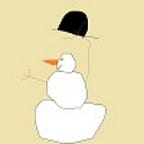“MUSIC MEMOIR” WRITING PROMPT
How Meredith Monk Made Me Appreciate Björk’s “Médulla” (2004)
A Sequel Of Sorts
“Médulla” was my proper introduction to Björk. I was familiar with Björk the pop culture phenomenon, i.e. I knew that she was both a genius and “really weird and stuff”. I had probably heard a song or two on the radio. But this was the first time I actually put on one of her albums and listened all the way through.
I didn’t get it.
I have previously written about my initial disappointment with “Utopia”, but this is different — this was the first time I had listened to the amazing Björk. The genius. One of the most important artists of our time. And this album was just — strange. I didn’t know what to do with it. This is the artist of a generation? What did people see that I was missing?
A few weeks later, I gave “Debut” a chance. I heard the percussion. I heard the opening line “If you ever get close to a human and human behavior … be ready, be ready to get confused” and all those questions seemed stupid. It all made sense to me and I’ve been a fan ever since. I still think “Debut” is a slightly better album than “Post” (controversial!), though not as good as “Vespertine” (maybe slightly less controversial). I spent weeks enraptured in the album’s beauty, thanking fate or circumstance or whatever that it had come to be part of my life.
I didn’t think about “Médulla” anymore.
Fast forward a few months. Philip Glass’ opera “Einstein On The Beach” was my obsession at the time and even though I was unfamiliar with most “traditional” approaches to opera, Philip Glass fascinated me and so did any music that took an unusual approach to an established genre. I needed more.
This led me to Meredith Monk’s “Atlas”.
This opera is a showcase for Meredith Monk’s voice. And while it is very possible that it also has a plot or an important story to tell, what mattered most to me was just the sheer insanity of it all — every piece showing me a new facet of what a voice could do, every new vocal experiment having me on the edge of my seat, awaiting the next sonic adventure with bated breath.
All that is to say — I’m not sure I ever really “got” the point of the opera or of Meredith Monk’s work as a whole. Maybe that’s the wrong approach to take anyway. But it did give me an appreciation for the kind of wild and seemingly unrestrained experimentation that I still look for in music to this day. The kind of “weirdness” that isn’t afraid to go wherever it wants to.
And of course, it gave me an appreciation for the potential of the human voice as an instrument.
This brings me back to Médulla.
Other than “Atlas”, “Medulla” has sung lyrics. It features Rahzel’s beatboxing, Tanya Tagaq’s throat singing, Mike Patton’s growls and even some non-vocal elements like piano and synths. But as well integrated as all of those elements are — of course Björk’s voice outshines them all.
It’s not a particularly hot take to call Björk’s voice impressive, but I will still do it. Björk’s voice is impressive. Björk’s voice is utterly mindblowing. Björk’s voice makes you reevaluate previously held beliefs about human capability.
And when it all comes together like this on an album, so well integrated into the sonic world, played off the other elements so organically it results in an album that gets better with every listen.
And it can also get a bit much at times.
When I reflected later on why Medulla didn’t click with me initially but only opened up to me after I had been familiar with Meredith Monk for a while, this was what I came up with.
Whereas I had originally listened to “Medulla” as first and foremost a complete, “regular” album (however unusual and boundary-pushing), I framed “Atlas” as an experimental piece exploring the potential of the human voice to carry meaning without the aid of lyrics.
And whereas before the almost exclusive reliance on Björk’s vocal contortions could seem overwhelming and a little “too experimental” — once I had gone through listening to Monk’s works “as experiments” I could appreciate the technique being used in the— however slightly — more familiar context of an album.
This probably wraps it all up a bit too neatly though, so I’m looking forward to having my interpretation shaken up as soon as possible.
Now if you’ll excuse me, I need to go outside and listen to some birds. Their voices are pretty impressive too.
Thank you for reading. I hope you enjoyed my story. If you want to read my article about birds and Björk’s “Utopia” that I mentioned above, click here:
Shoutout to Karla Clifton who has written a great review of “Post” here:
